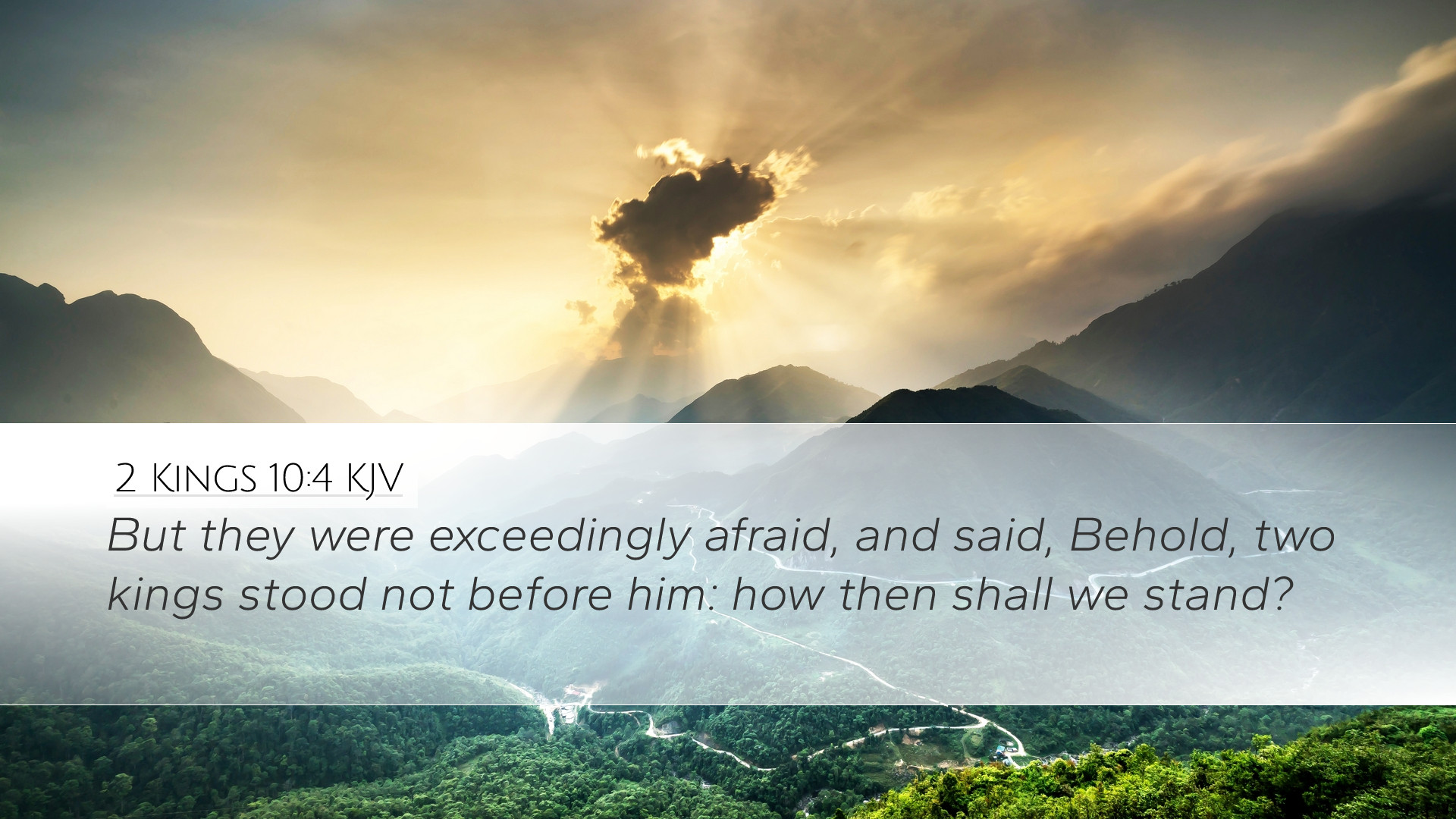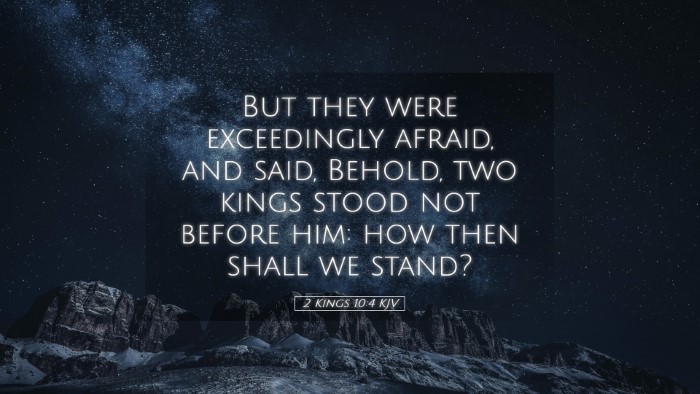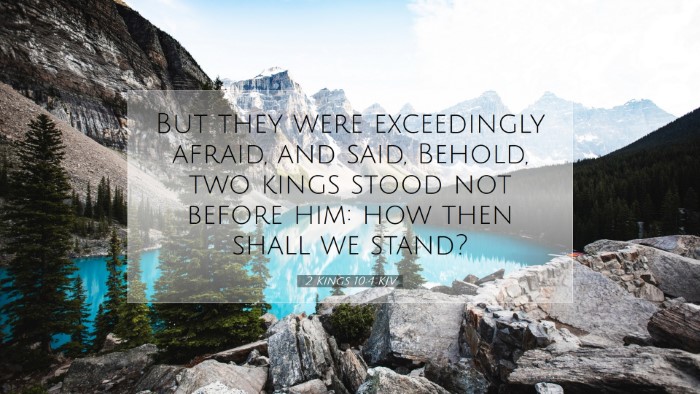Old Testament
Genesis Exodus Leviticus Numbers Deuteronomy Joshua Judges Ruth 1 Samuel 2 Samuel 1 Kings 2 Kings 1 Chronicles 2 Chronicles Ezra Nehemiah Esther Job Psalms Proverbs Ecclesiastes Song of Solomon Isaiah Jeremiah Lamentations Ezekiel Daniel Hosea Joel Amos Obadiah Jonah Micah Nahum Habakkuk Zephaniah Haggai Zechariah MalachiVerse
2 Kings 10:1 2 Kings 10:2 2 Kings 10:3 2 Kings 10:4 2 Kings 10:5 2 Kings 10:6 2 Kings 10:7 2 Kings 10:8 2 Kings 10:9 2 Kings 10:10 2 Kings 10:11 2 Kings 10:12 2 Kings 10:13 2 Kings 10:14 2 Kings 10:15 2 Kings 10:16 2 Kings 10:17 2 Kings 10:18 2 Kings 10:19 2 Kings 10:20 2 Kings 10:21 2 Kings 10:22 2 Kings 10:23 2 Kings 10:24 2 Kings 10:25 2 Kings 10:26 2 Kings 10:27 2 Kings 10:28 2 Kings 10:29 2 Kings 10:30 2 Kings 10:31 2 Kings 10:32 2 Kings 10:33 2 Kings 10:34 2 Kings 10:35 2 Kings 10:36

